‘Deadhead’ takes up life in Las Vegas after 26 years behind bars
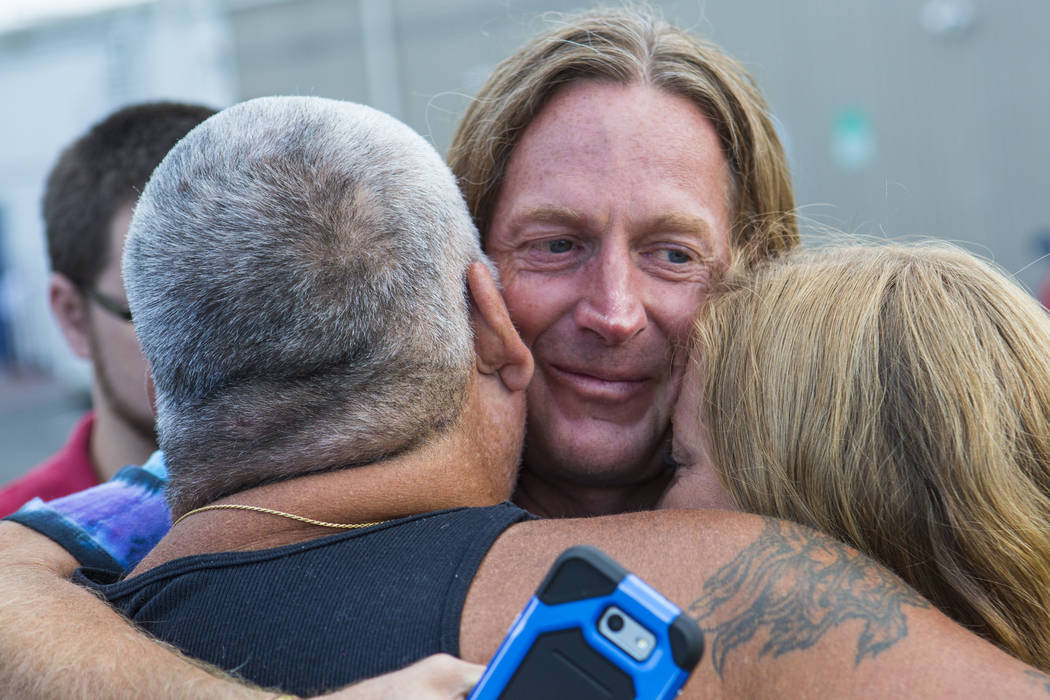
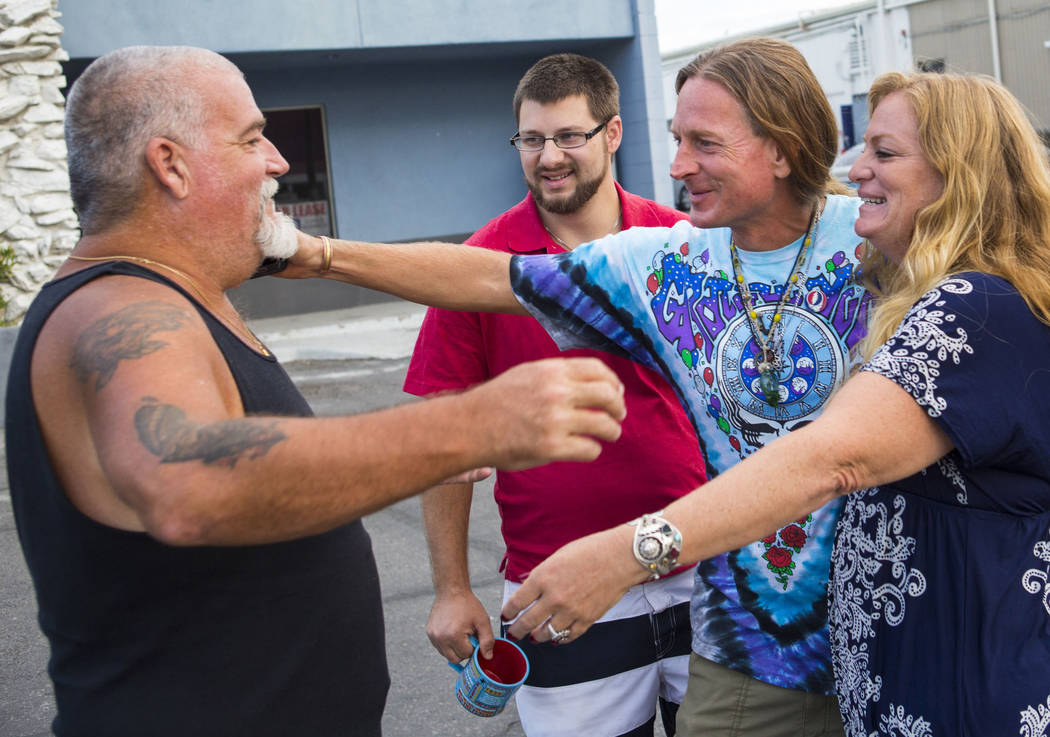
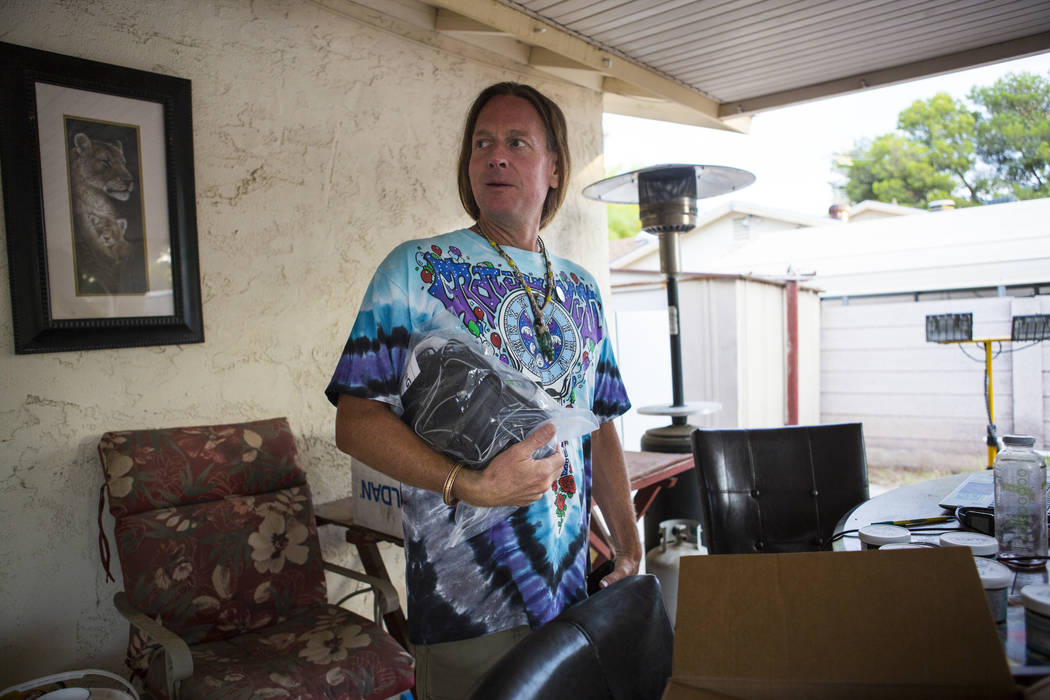
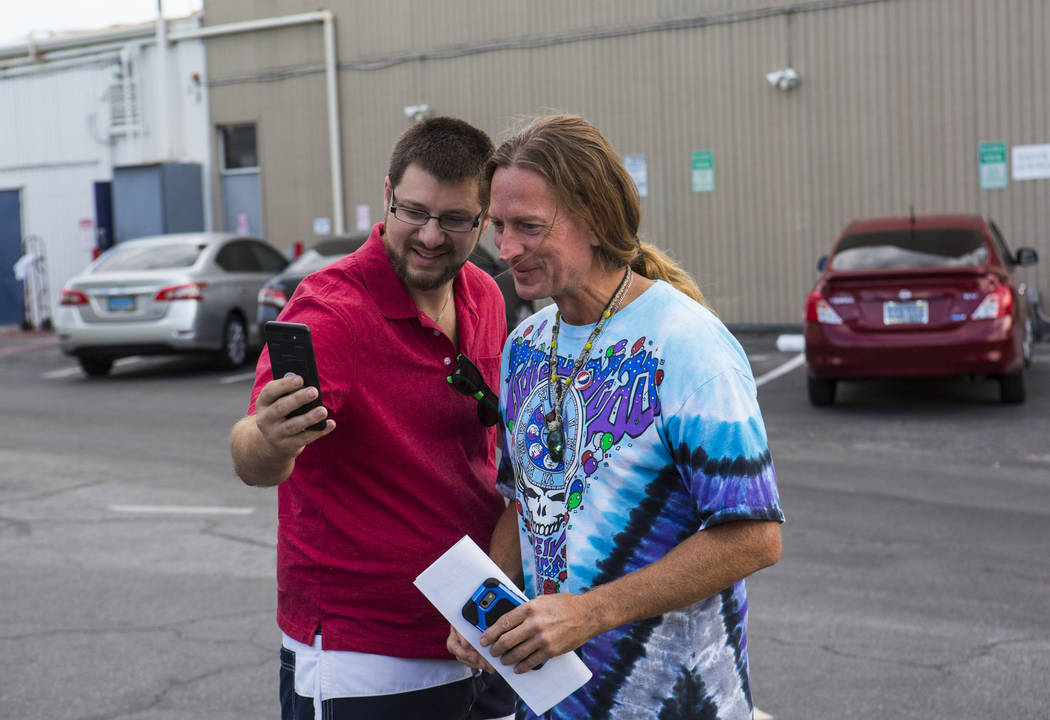
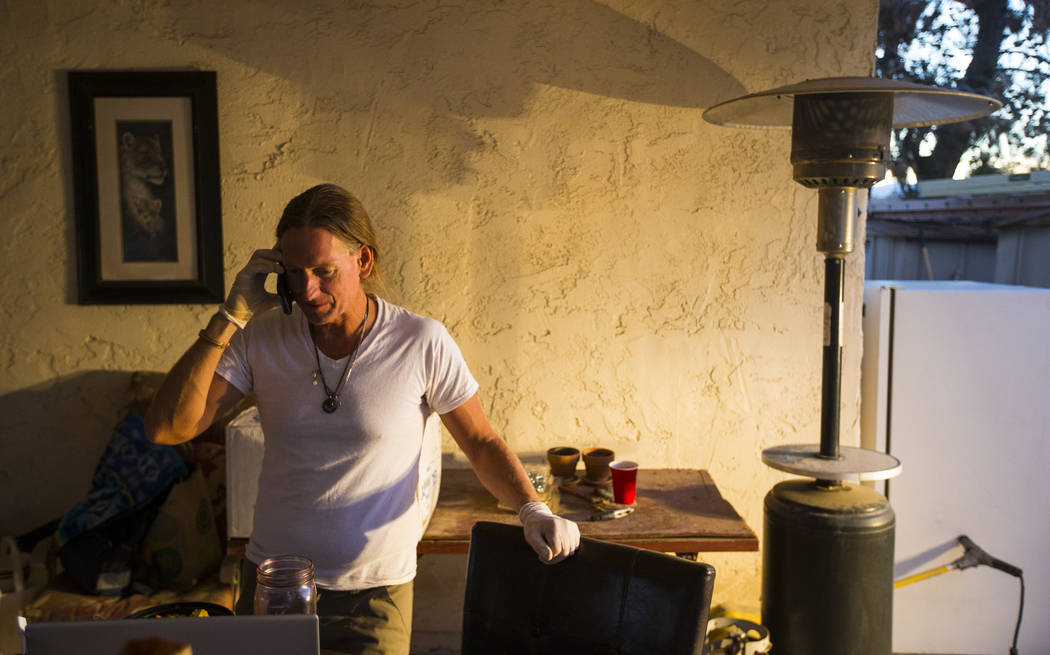
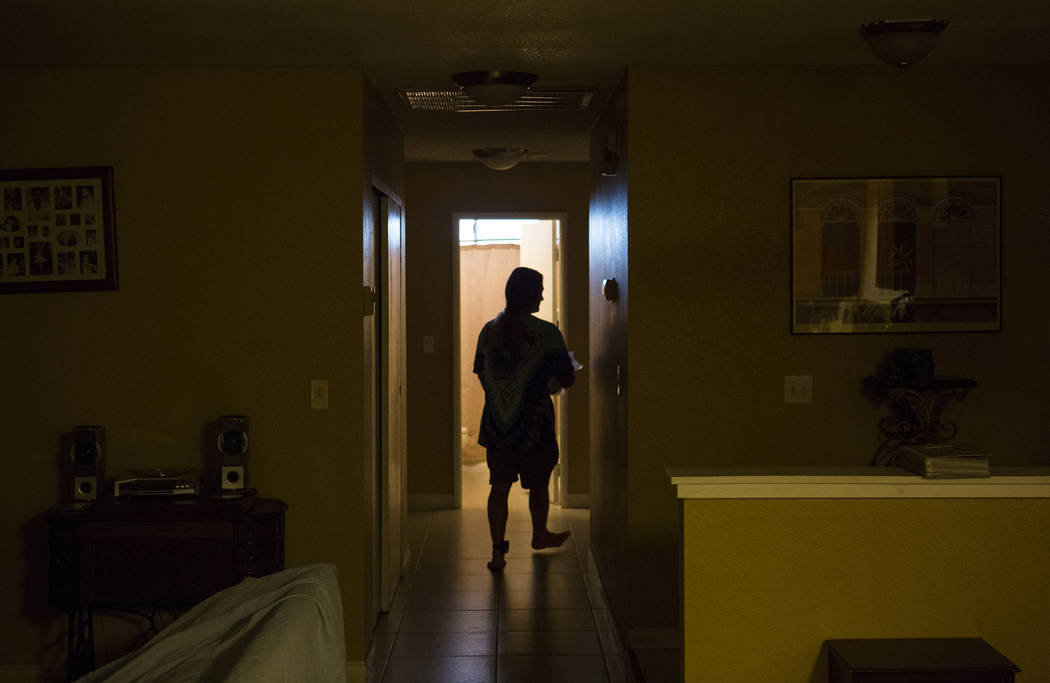
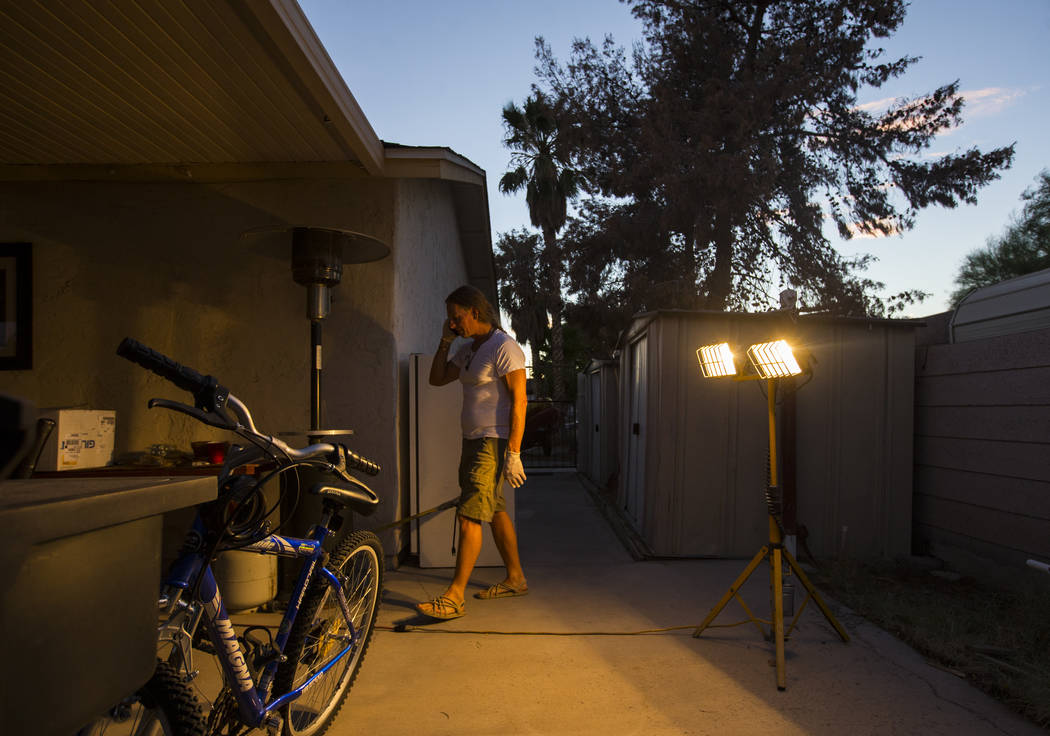
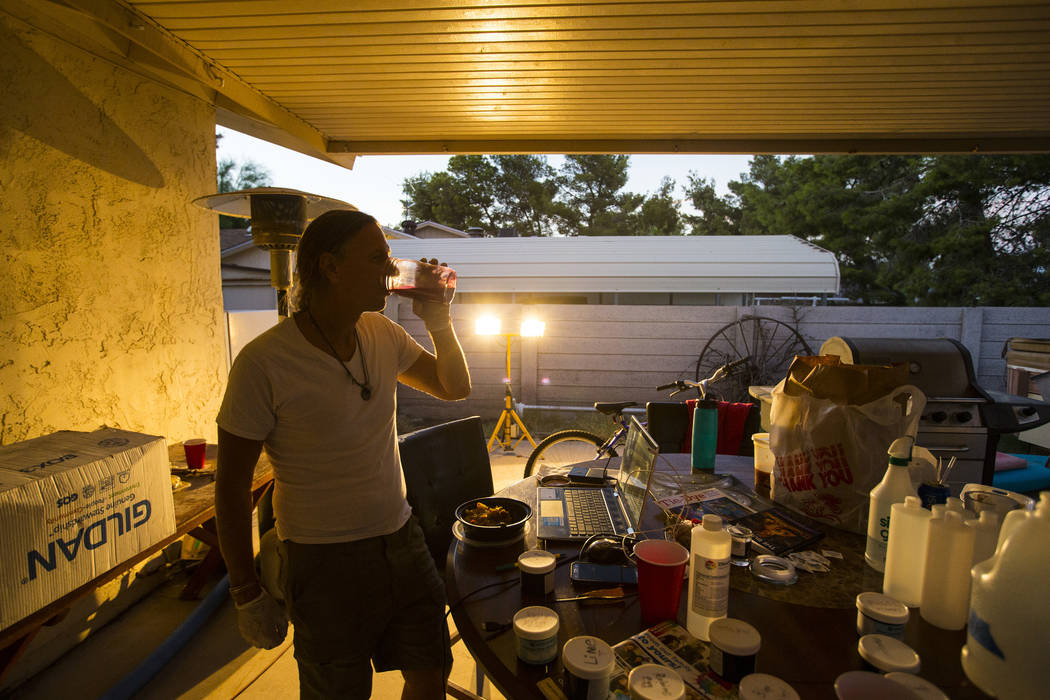
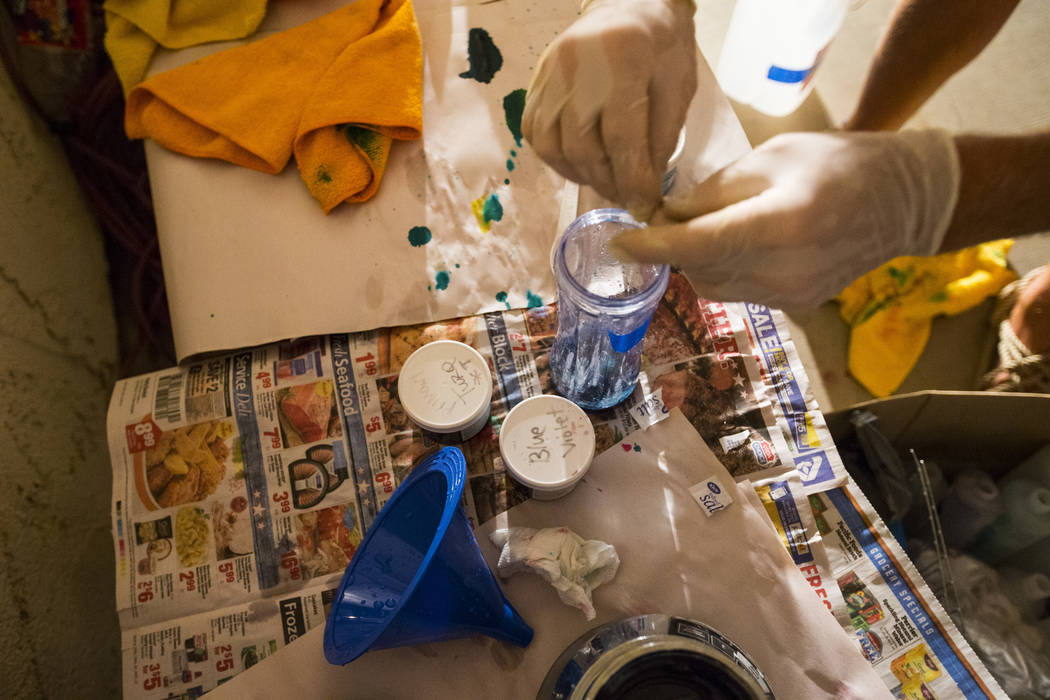
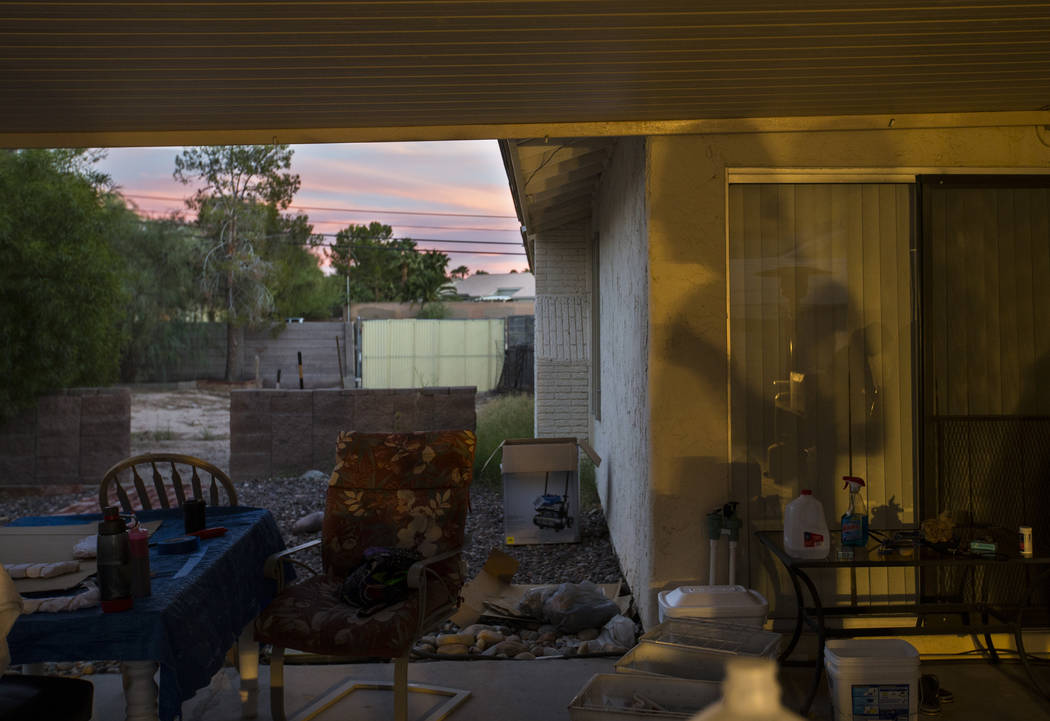
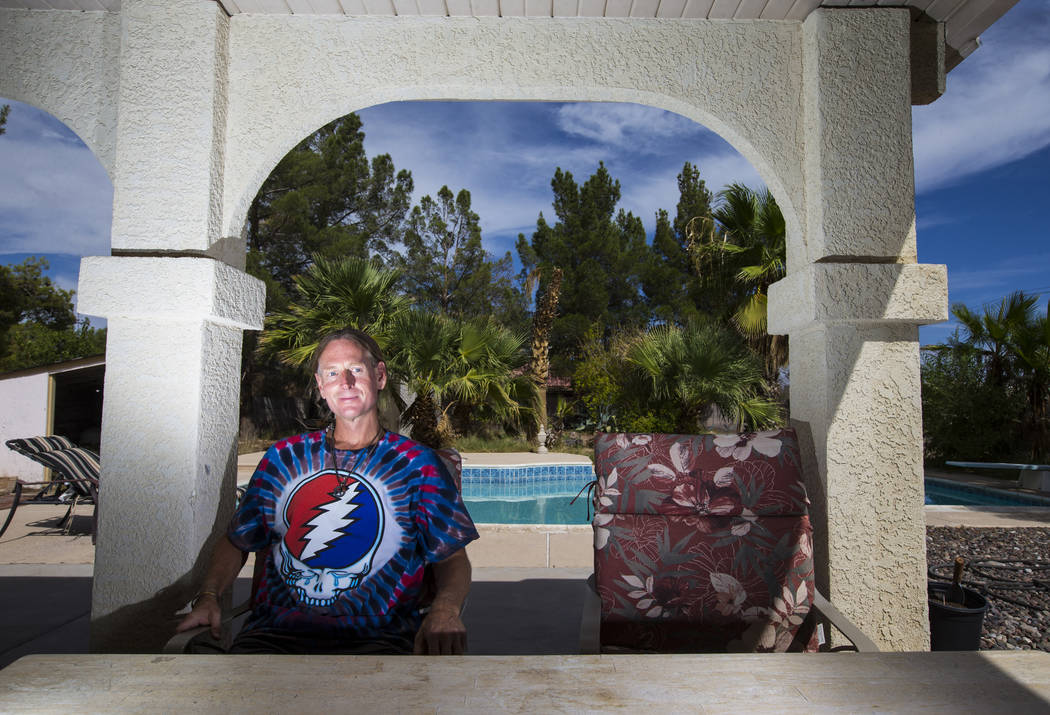
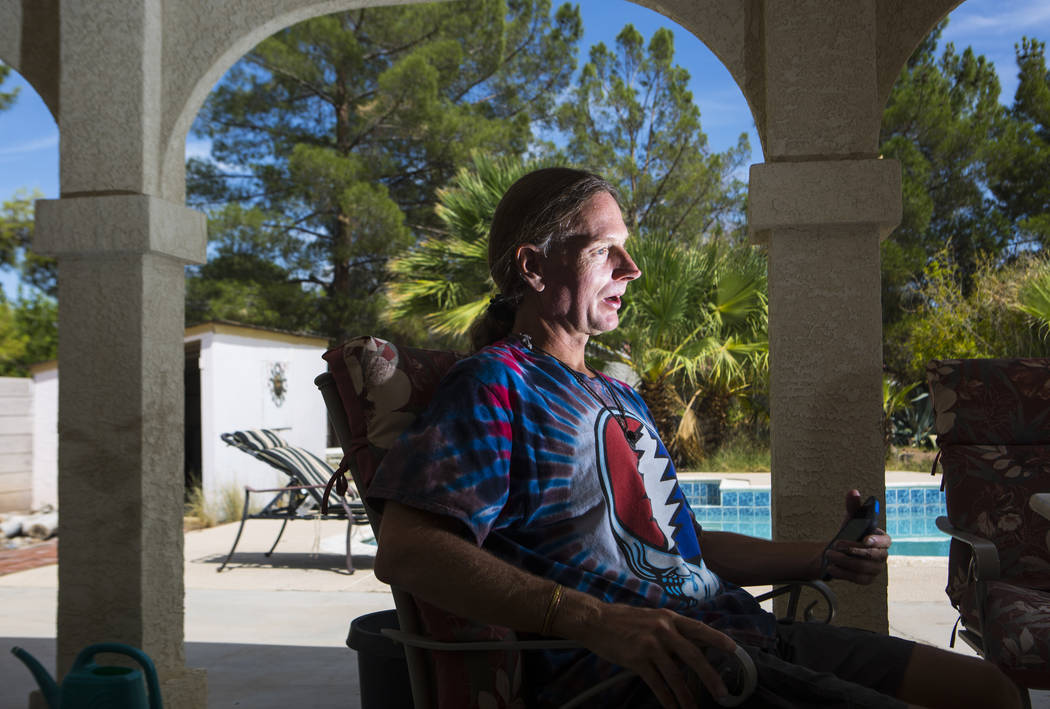
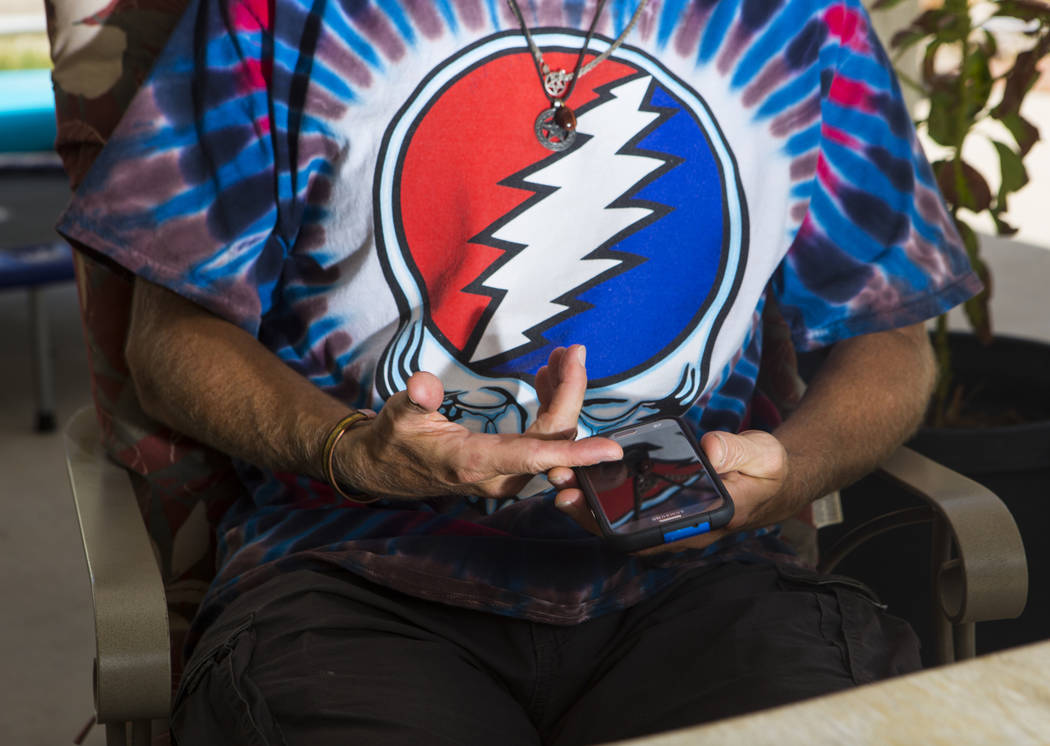
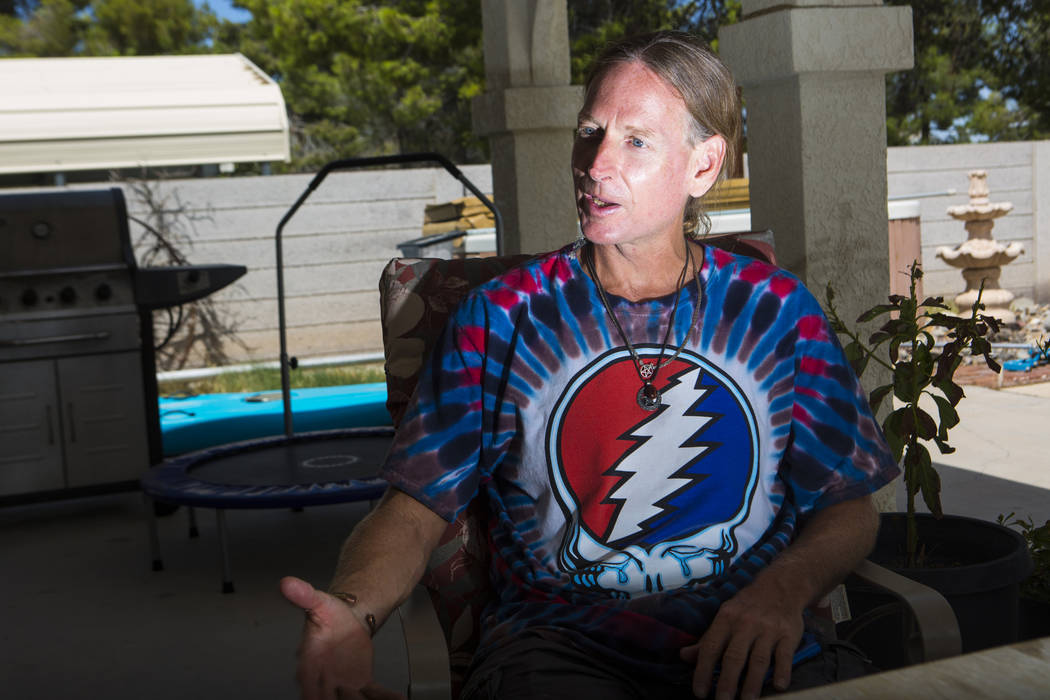
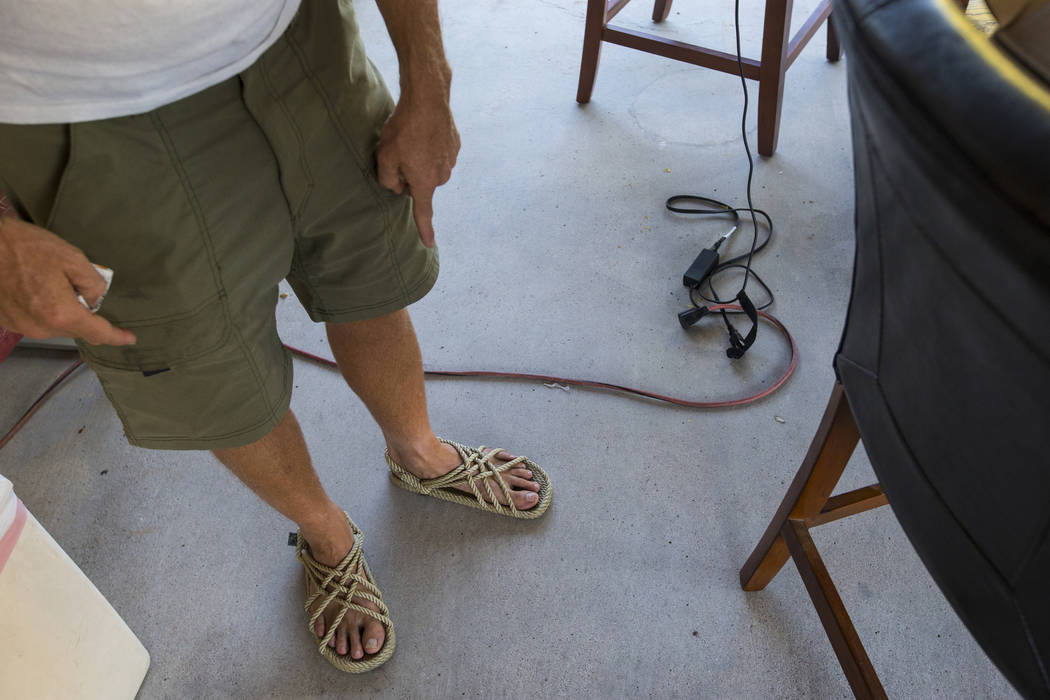
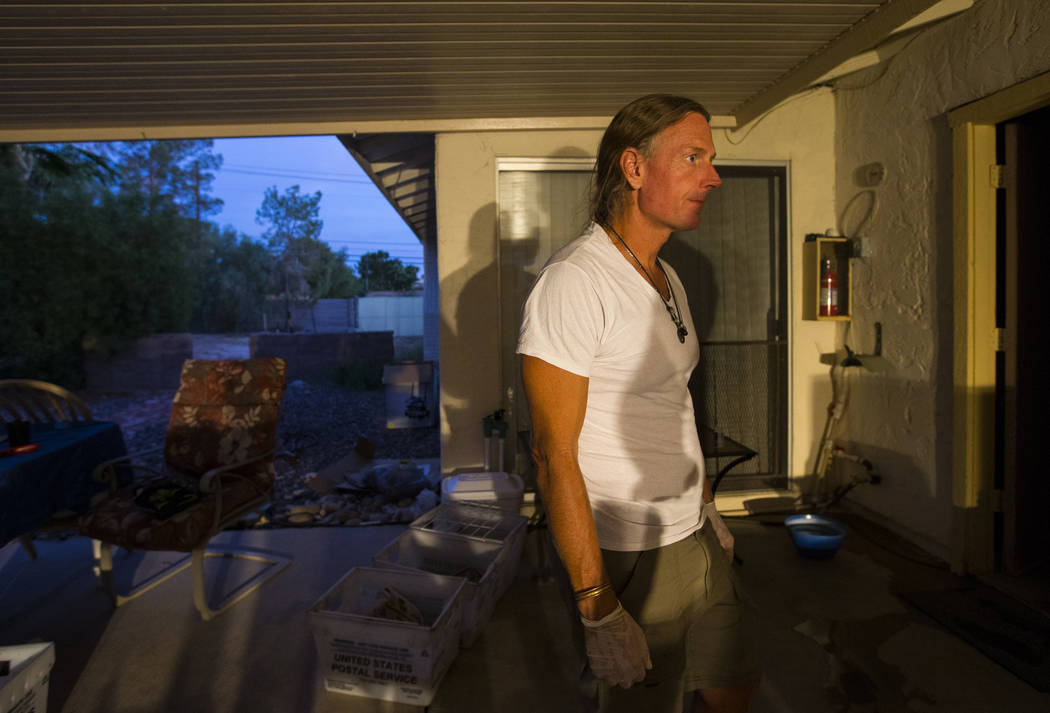
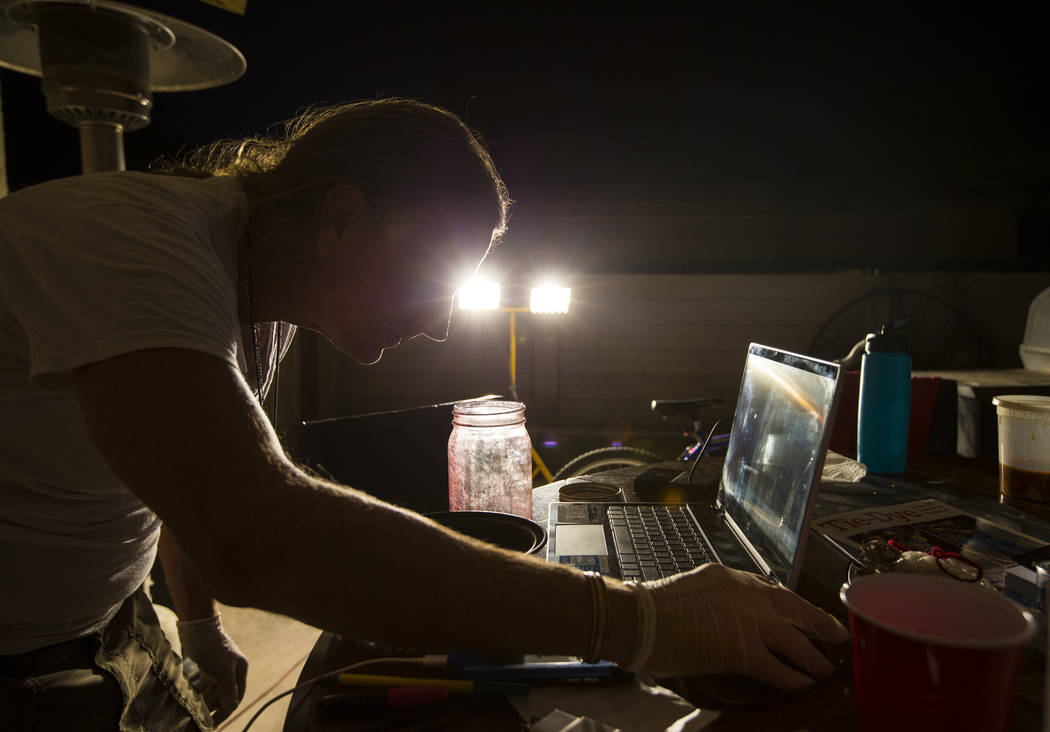
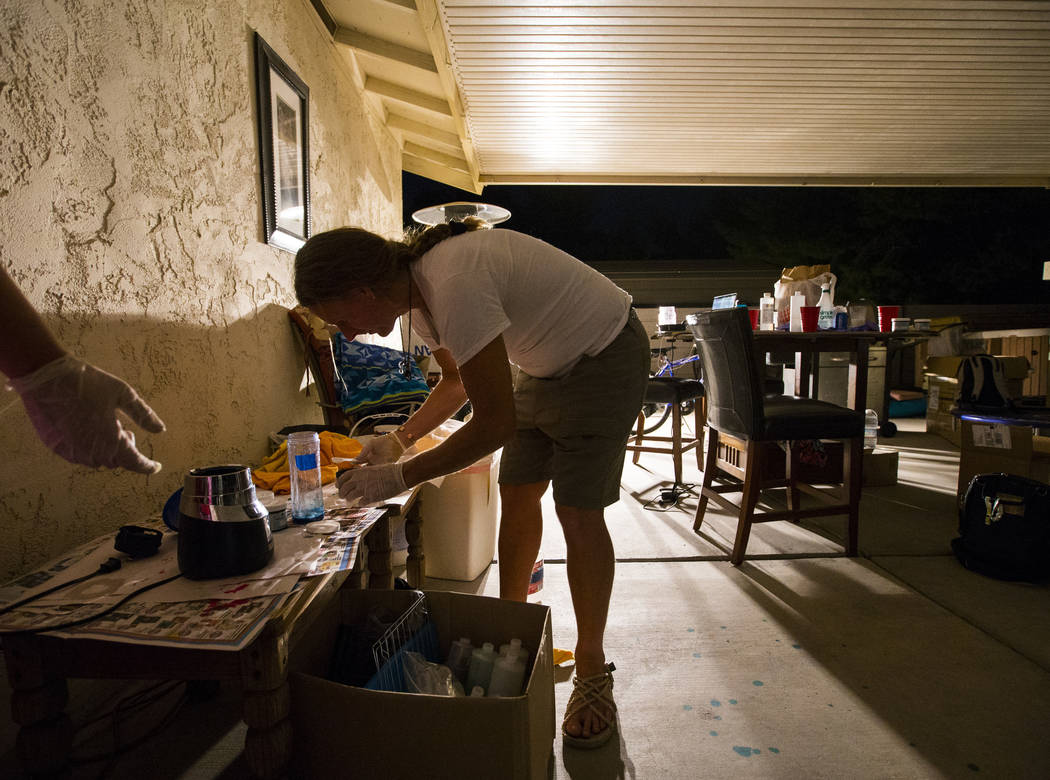
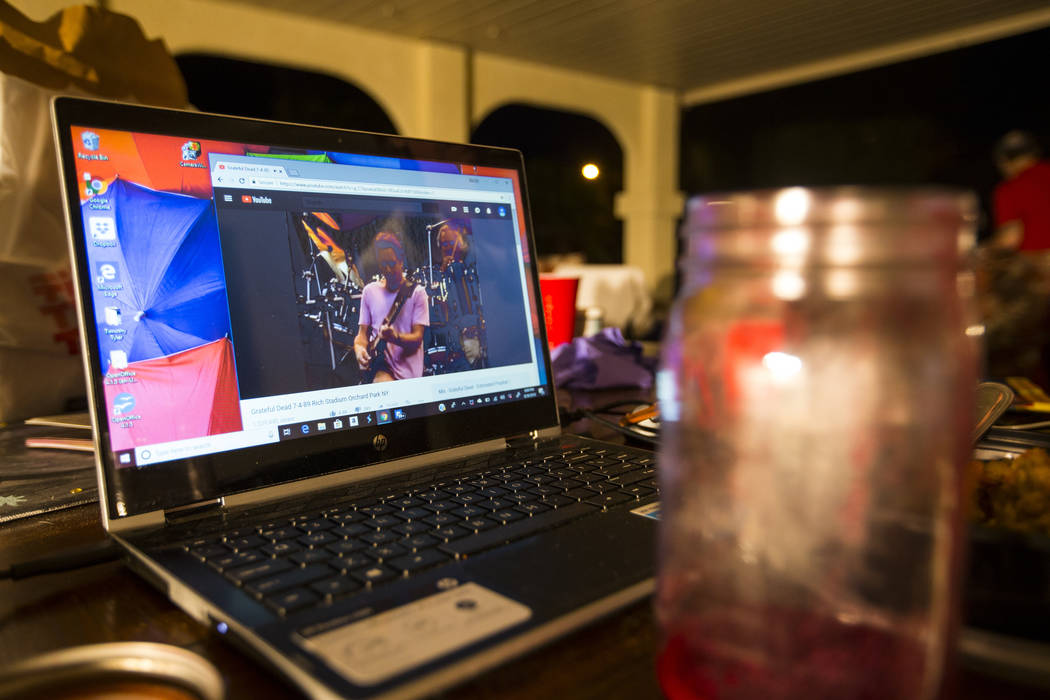
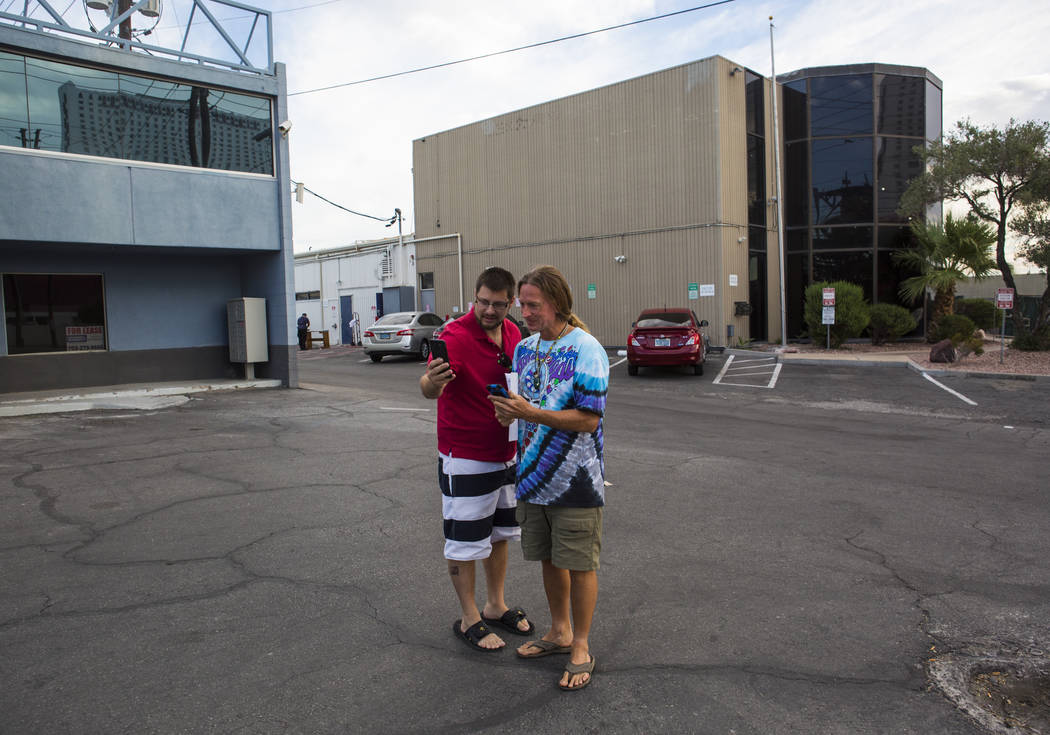
For Timothy Tyler, freedom sounded like two scissor blades snapping shut.
The 49-year-old held the shears in his shaky hands at a halfway house early Aug. 30 in Las Vegas, where his sister lives. An officer let him do the honors.
Carefully, Tyler slid the bottom blade under the black band that choked his ankle. With a deep breath and a thick snip, the ankle monitor popped apart, marking the end of what was supposed to be life in federal prison without the possibility of parole — a sentence ordered in 1994.
The dull thoughts he learned to have about his future suddenly swirled into color.
Tyler began living behind bars at 23 after he was caught selling LSD for a third time. The Grateful Dead fan — or self-proclaimed “Deadhead” — sold the drug on the side while traveling the country, selling fried dough at the psychedelic band’s shows. He was on the way to another Grateful Dead gig in California when he was arrested on a warrant out of Florida.
His first two arrests resulted in probation but no prison time. Tyler’s third strike held no mercy.
His father, who also was arrested, was sentenced to 10 years in federal prison. He died before he got out.
Tyler never thought he would.
“It’s hard to describe,” Tyler told the Las Vegas Review-Journal a few hours after the anklet came off and about three months after he walked out of a federal penitentiary in Georgia, where his family was waiting. “Surreal? That’s a good word. It— it hasn’t really sunk all the way in yet.”
Passing the time
After his sentencing, Tyler lived in prison for 22 years with no release date.
“Lived” is a literal term. In prison, as he described it, he was just alive. Not dead. Simply existing, each day, over and over.
Every morning, he woke up when he was told. He ate when he was told. He showered when he was told. He slept when he was told.
Guards and surveillance cameras monitored his every move. So did his fellow prisoners.
In the cafeteria, he traded meat for beans and soy. He was vegan, and despite the difficulty in prison, he did what he could to honor the choice that he made before he lived in a place where choices did not really exist.
For nearly 20 years, he could not pop in headphones and listen to his favorite band, because federal prisons did not begin permitting MP3 players until 2012. He had a radio before that, but radio stations do not typically play the Grateful Dead.
“Every time I was really feeling sad or bad or needed a little inspiration,” he said, “I would call my sister and listen to a song called ‘Days Between,’ Grateful Dead, over the telephone.”
When allowed, he played handball outside to pass the time. If he was granted four hours in the yard, he spent all four hours playing. Strike the ball. Sprint. Strike. Sprint. Strike. Sprint. Again and again, until time was up.
Tyler gained wrinkles. The color faded from his hair. His dreams atrophied.
Hope came in 2016, when President Barack Obama granted him clemency after thousands of Grateful Dead fans signed an online petition. The order meant that Tyler, a nonviolent offender, would be free Aug. 30, 2018, after spending more than two dozen years behind bars.
It only felt like hope in hindsight, though. Because even after the document signed by Obama landed in his court file, even after his prison warden approved his release, even after his family rejoiced on the phone and — when they could — in person, Tyler did not believe he was getting out. He couldn’t comprehend it.
The day he was supposed to be released, he was called up to the “receiving and discharge” unit 10 minutes later than expected. In that small window of time, Tyler already had accepted that his entire clemency was a trick and that he would remain in prison forever.
Then, while going over exit paperwork, prison staff realized that the warden hadn’t signed one of Tyler’s documents. They also couldn’t find the release clothes his sister had sent over.
“Figures,” Tyler thought to himself, again accepting that he was not going anywhere.
The hiccups were resolved, though, and soon, guards were guiding him out of receiving and discharge and through a gate. Then another gate, and another gate, and another gate.
Then there were no more gates.
“As soon as I seen the sun, I broke down,” Tyler said. “Yeah. I broke down.”
Beyond the prison grounds, his mom and cousin were waiting on a field of thick green grass.
“Like, ‘Whoa,’” he said, trailing off into his thoughts. “I don’t believe this right here.”
Life after lockup
Tyler calls prison “nowhere.”
As society churns forward, prison provides a curtain. You slip behind it and disappear, frozen in time.
Events like Sept. 11, 2001, and the Sandy Hook Elementary School shooting came and went. The iPhone was released, and year after year, a newer and newer model followed. Social media became a thing, and over time, it became a thing parents had, too.
None of that affected the prison ecosystem.
“So imagine I’m nowhere, and then I walk out, and I see all this stuff,” Tyler said.
At the Greyhound bus station, he couldn’t figure out how to turn on the automatic faucet. Sitting in his sister’s sunny Las Vegas backyard, he pointed to his new smartphone, a gift from his mom.
“I mean, this thing? When I found out what this little thing does?” he said, tapping on the screen. “I can take pictures right now and send them around the world. Instantly.”
Craig Haney, a University of California, Santa Cruz professor who studies the psychological impact of incarceration, said many prisoners try to maintain as much contact as they can with the outside world.
“But when you go in thinking you’re never going to get out, the psychology of the place has a much greater hold on you,” Haney said.
The lines blurred badly during Tyler’s first week of supervised release. It happened in a steam room at a local gym, where Tyler would go to relax during the select few hours he was allowed to leave the confines of his sister’s home.
“I was in the steam room just, like, staring at things,” he said. “I was like, ‘I can’t believe it. I’m here, man.’”
Donald Hummer, a Penn State Harrisburg criminal justice professor who researches the prison system, said that, as a prisoner, “Your whole world is reduced to what happens within those walls.”
“He adapted to his fate in prison because he had to, or he would die,” Hummer said. “That kind of deprogramming, when someone comes out after that amount of time? It takes a long, long amount of time.”
Tyler will need a good support system moving forward, Hummer said.
“It really is like coming from a different world and being thrust into a new one,” he added.
Father and son
The first thing Tyler did as a free man was hug his adult son, Jim Newhart.
For years, Tyler never knew he had a son, and Newhart, now 30, never knew Tyler was his dad. Pictures shared among relatives seemed to prove their relation. A DNA test confirmed it.
“All my little quirks and stuff, when I finally met him — like most of the stuff people think I’m weird for, like eating garlic out of a can — that was all from him,” Newhart said.
This is not a perfect ending, though. It’s the rough draft to a new beginning.
“I’d like to say brothers more than father and son,” Tyler said before he met Newhart.
He was ecstatic, but he was nervous, too.
“I still feel like I’m young in age, because it’s like time stopped,” Tyler continued. “He’s I guess more mature than I am in some ways.”
When the ankle monitor came off, and Tyler was free to explore, the men visited the Strip together briefly.
They also went to the grocery store, where Newhart taught Tyler how to use the self-checkout machine. Later, they stopped at a gas station, where Newhart reminded Tyler to turn off the car before pumping gas.
“It’s little stuff to a lot of people, but he has a lot to learn,” Newhart said. “But I know he’s very, very thankful to experience those things, as am I.”
Looking forward, Tyler has no real plans on the horizon. It’s still hard to make them. As far as LSD, though, “I’m done.”
“I’m not going to touch it,” he said. “Nothing illegal, ever again.”
He enjoys going on Facebook. A friend helped him set up an account after he got out, and in family settings, he sometimes gets sucked into his phone screen, scrolling and scrolling, as many people do. He has years of “likes” and “shares” to catch up on.
He enjoys trying new vegan food, and he appreciates that Las Vegas has so many vegan-friendly restaurants. A friend recently dropped off some cauliflower cooked with Buffalo sauce at his sister’s home, where he is staying. He’d never considered the combination, but he loved it anyway.
He strums his guitar a lot. He only did that once in prison, during a talent show. He recently learned how to make tie-dye shirts.
In January, he wants to go to Mexico. It’s where Dead & Company, a band made up of former Grateful Dead members, is expected to play three shows just steps from the Caribbean Sea. Donations from fellow Deadheads already covered the cost of travel and tickets, and an attorney is helping him secure a passport.
Until then, he’s going to travel the country. He wants to visit family and old friends, and he wants to thank new ones — strangers who sent him money and stickers and food and letters of support since his release.
“It’s sort of like he’s going on his own tour,” Newhart said.
First stop, California.
Contact Rachel Crosby at rcrosby@reviewjournal.com or 702-477-3801. Follow @rachelacrosby on Twitter.













